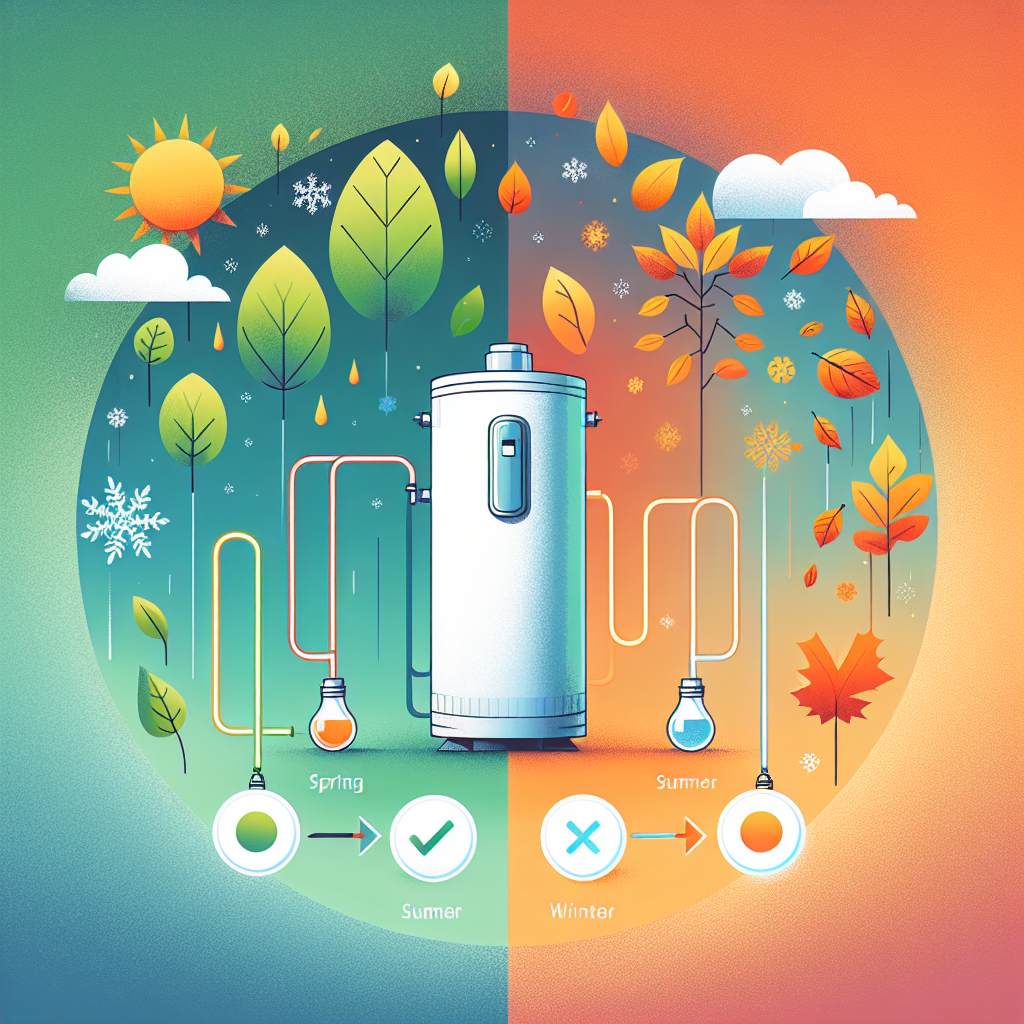As homeowners, maintaining our water heater is often a task that slips our minds—at least until we find ourselves shivering in a cold shower. Did you know that the climate you live in can significantly impact your water heater’s efficiency and lifespan? Understanding these nuances can help you make informed decisions that ultimately save you time, money, and frustration. Here’s a comprehensive guide to how varying climates affect your water heater’s performance, along with practical tips for every season.
The Impact of Climate on Water Heaters
Water heaters are designed to perform optimally under certain conditions. However, those conditions can change dramatically based on your geographic location, temperature variations, and seasonal shifts. Whether you’re enduring the frosty winters of the Midwest or the humid summers of the South, each season brings unique challenges to your water heating system.
Winter: Facing the Chill
During the winter months, cold temperatures can strain your water heater. When the ambient temperature drops, your heater must work harder to maintain your desired water temperature. Here are some strategies to optimize performance:
-
Insulation is Key: Insulating your water heater and the pipes can significantly reduce heat loss. A tank insulator or blankets designed for water heaters can be an easy and effective solution.
-
Monitor the Thermostat: Keeping your thermostat at an optimal setting of around 120°F can help avoid unnecessary strain on the unit while still providing hot water on demand.
- Consider Anti-Pipe Freeze Options: If you live in an especially cold region, consider installing heat tape or pipe insulation on external plumbing to prevent freezing.
Spring: Warm-Up Time
As spring rolls around, temperatures begin to rise, and your water heater may experience increased efficiency. However, with the melting snow and rain, moisture can become an issue:
-
Inspect for Corrosion: Check your unit for any signs of corrosion or leaks exacerbated by wet conditions. Water heaters, especially older models, can suffer from rust damage that can lead to leaks.
- Flush the Tank: Spring is a great time to flush your water heater to remove sediment that has accumulated over the winter. This helps improve efficiency and extend the lifespan of your heater.
Summer: The Heat is On
Warmer temperatures can make it easier for your water heater to maintain temperatures; however, summer also brings an increase in water demand due to frequent showers and dips in pools.
-
Lower the Temperature: Consider lowering the thermostat in summer to reduce energy consumption. A setting of 120°F is generally sufficient, even during the warmer months.
- Regular Maintenance: Ensure you perform routine checks. Clean filters and flush out sediment every few months to keep your heater running smoothly amid increased usage.
Fall: Preparation for Winter
As the leaves begin to fall, it’s time to prepare your water heater for the upcoming winter months. Proactive care can save you from headaches later.
-
Schedule a Professional Tune-Up: A fall check-up can help identify potential issues that could arise in colder months. A qualified technician can provide maintenance that ensures optimal performance.
- Test the Pressure Relief Valve: Regularly check and test the pressure relief valve to ensure safety and efficiency. This simple task can prevent future emergencies.
Climate-Specific Considerations
Your geographical location can provide insight into specific issues that may arise with your water heater. Let’s break it down:
Humid Climates
High humidity can lead to corrosion and rusting more quickly. Make sure your water heater and pipes are adequately insulated. Dehumidifiers can also help combat excess moisture in the air.
Arid Climates
Drier climates can increase mineral build-up in your water heater. Regular flushing becomes even more crucial to maintain efficiency.
Very Cold Climates
In extreme cold areas, consider switching to a tankless water heater. These units are less prone to freezing, as they heat water on demand and don’t store it in a tank.
Conclusion: Tailoring Care to Seasons
Understanding how climate affects your water heater’s performance is essential for maximized efficiency and longevity. Seasonal maintenance is not just a chore; it’s the key to a reliable supply of hot water year-round. Take action by consulting professional services for inspections, monitoring the temperature settings, and educating yourself on specific climate considerations.
By taking these proactive steps, you can ensure that your water heater will be up to the task—no matter what Mother Nature throws your way. With a little effort, you can enjoy warm, comfortable showers and peace of mind knowing you’re taking care of your home’s essential systems.
For more tips, stay tuned as we explore home improvement and maintenance strategies that fit your lifestyle and region!


